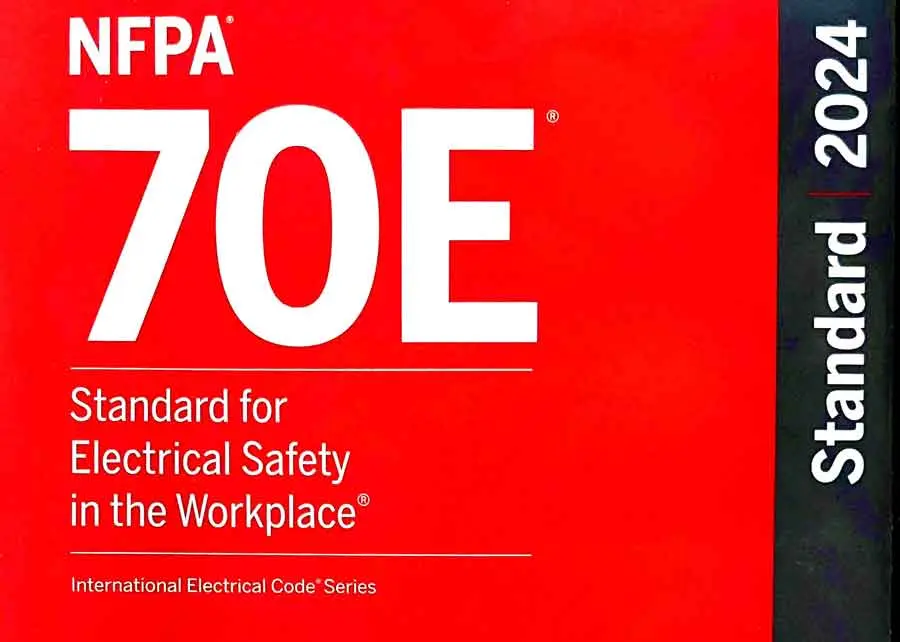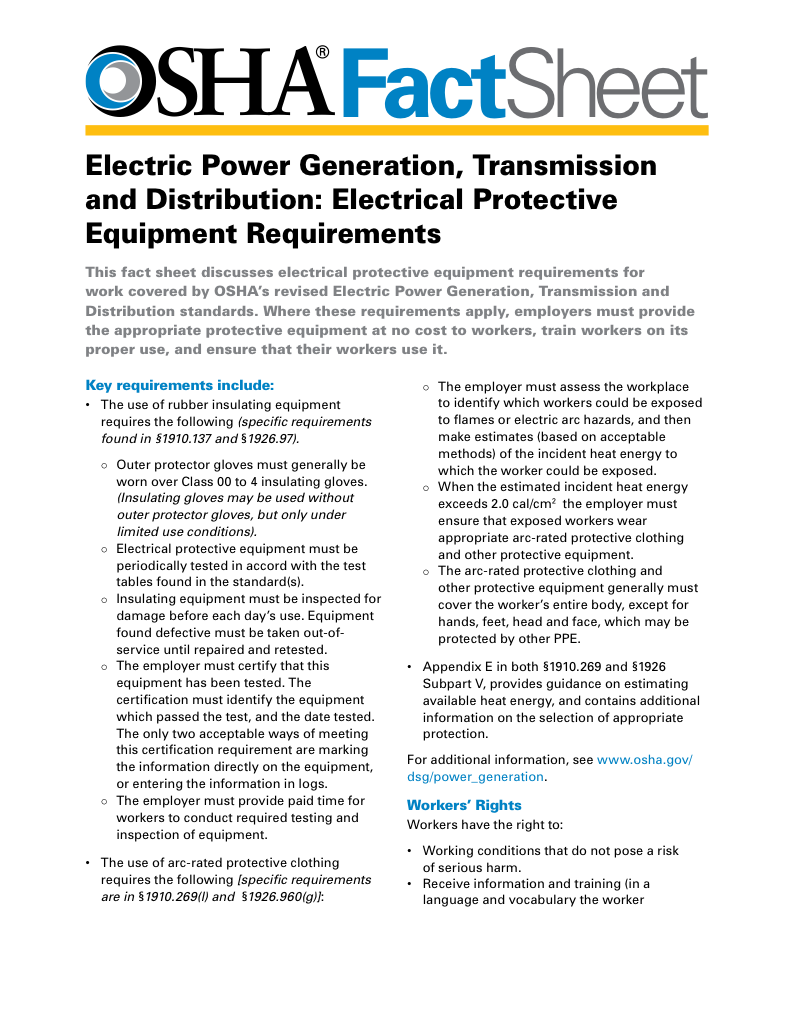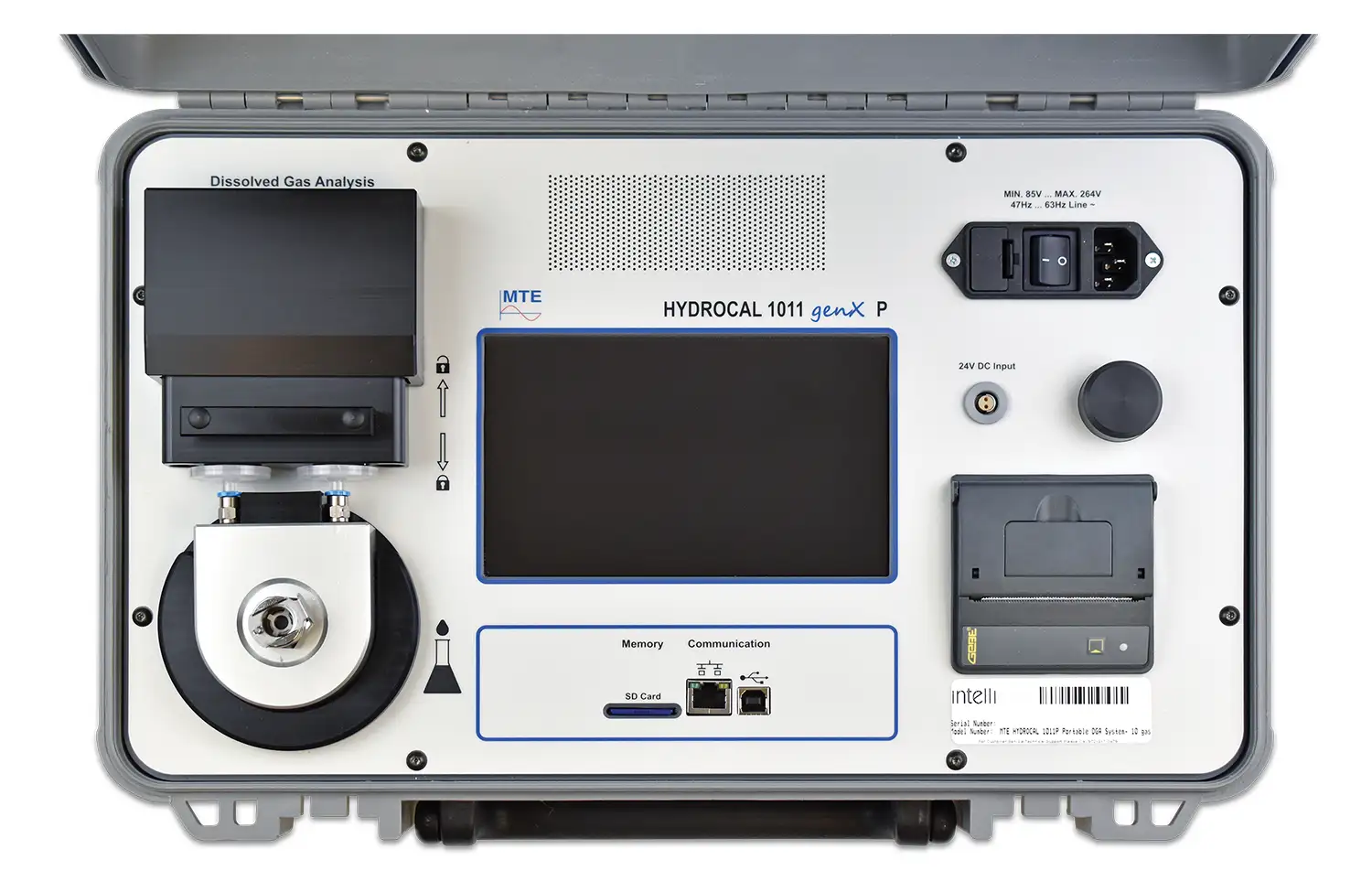NFPA 70E 2024 Explained
By R.W. Hurst, Editor

CSA Z462 Arc Flash Training - Electrical Safety Essentials
Our customized live online or in‑person group training can be delivered to your staff at your location.

- Live Online
- 6 hours Instructor-led
- Group Training Available
Download Our OSHA 3875 Fact Sheet – Electrical PPE for Power Industry Workers

- Follow rules for rubber gloves, arc-rated PPE, and inspection procedures
- Learn employer obligations for testing, certification, and training
- Protect workers from arc flash and electrical shock injuries
NFPA 70E 2024 outlines updated electrical safety standards for arc flash, shock protection, and PPE. Learn about key changes, training requirements, and how the standard helps prevent electrical injuries in the workplace.
What is NFPA 70E?
NFPA 70E 2024 is the latest edition of the National Fire Protection Association’s standard for electrical safety in the workplace.
✅ Updates requirements for arc flash protection and PPE use
✅ Emphasizes risk assessment and safety program documentation
✅ Aligns with OSHA to improve compliance and injury prevention
The Standard for Electrical Safety in the Workplace is crucial for ensuring the safety of workers who interact with electrical systems. The latest edition introduces several important changes that professionals should be aware of. This article delves into these changes, exploring the standard's key aspects, addressing common questions, and highlighting its significance in preventing electrical hazards.
To support workplace compliance, our NFPA 70E training course equips electrical professionals with the knowledge and certification needed to meet regulatory requirements.
Request a Free Training Quotation
NFPA 70E provides comprehensive guidelines and requirements for establishing an electrical safety program designed to protect personnel from electrical hazards. These hazards include electric shock, arc flash, arc blast, and other electrical incidents. The standard outlines safe work practices, procedures for de-energizing equipment, personal protective equipment (PPE) requirements, and risk assessment methodologies.
If you’re new to this standard or need a refresher, read our foundational guide: What is NFPA 70E.
Frequently Asked Questions
What Changes Were Adopted by NFPA 70E in 2024?
The 2024 edition of NFPA 70E introduces several key updates aimed at improving clarity and effectiveness in electrical safety practices:
-
Updated Terminology: To avoid ambiguity, terms like "electric shock" have been clarified and consistently used throughout the document.
-
Emergency Response Planning: A new requirement has been added to include an emergency response plan in job safety planning.
-
Scope and Definitions: Each article now begins with a clear scope, and definitions have been consolidated into Article 100 for easier reference.
-
Operating Conditions: The term "Operating Condition" has replaced "Equipment Condition" to align with requirements for safe operation.
-
Hearing Protection: All personnel within the arc flash boundary must wear hearing protection, reflecting the heightened awareness of increased risk.
These enhancements align with updated practices outlined in NFPA 70E, which provides practical guidance for improving safety.
Test Your Knowledge About Arc Flash!
Think you know Arc Flash? Take our quick, interactive quiz and test your knowledge in minutes.
- Instantly see your results and score
- Identify strengths and areas for improvement
- Challenge yourself on real-world electrical topics
Learn how NFPA 70E was originally developed at OSHA’s request to address critical gaps in workplace electrical safety.
The 2024 edition of NFPA 70E, the standard for electrical safety in the workplace, includes significant updates, including clarification of Article 110, General Requirements for Electrical Safety-Related Work Practices. This note addresses updated boundaries, such as the hearing protection boundary and the lung protection boundary, to enhance worker safety in high-risk environments. By incorporating these changes, the standard enhances protection against hazards such as arc flashes, emphasizing the use of personal protective equipment (PPE) to mitigate electrical risks and reduce the potential for severe injuries.
What are the Main Points of NFPA 70E?
NFPA 70E covers a wide range of topics related to electrical safety. It emphasizes the importance of establishing an Electrical Safety Program (ESP), conducting hazard identification and risk assessment, implementing safe work practices, and ensuring proper use of PPE. The standard also addresses specialized tasks such as working on or near energized parts, establishing electrically safe work conditions, and conducting inspections and audits.
Key aspects of NFPA 70E include:
-
Arc Flash Hazard Analysis: Procedures to assess and mitigate the risk of arc flashes. Learn how to meet NFPA 70E arc flash requirements through proper analysis.
-
Personal Protective Equipment (PPE): Guidelines for properly selecting and using arc-rated clothing and equipment. Ensure your facility complies with the updated NFPA 70E PPE requirements.
-
Safe Work Practices: Methods to establish an electrically safe work condition, including lockout/tagout procedures.
-
Training and Qualification: Requirements for training workers and ensuring they are qualified to handle electrical equipment safely. For full compliance, see our summary of NFPA 70E training requirements.
Looking to validate your compliance credentials? Review our NFPA 70E certification page for options.
What is the Difference Between NFPA 70 (NEC®) and NFPA 70E?
NFPA 70, also known as the National Electrical Code (NEC), focuses on the installation of electrical systems to prevent hazards, whereas NFPA 70E addresses the safety practices required to work safely on or near energized electrical equipment. Essentially, NFPA 70E complements NFPA 70 by addressing the operational safety aspects for workers.
The NFPA 70E arc flash table provides a simplified method for selecting PPE based on typical tasks, eliminating the need for full incident energy calculations.
Does OSHA Enforce NFPA 70E?
While OSHA does not directly enforce NFPA 70E, it requires adherence to electrical safety standards that align with its guidelines. OSHA references NFPA 70E as a recognized standard for ensuring workplace safety regarding electrical hazards.
Our NFPA 70E compliance checklist is a helpful tool for aligning your program with both OSHA expectations and CSA Z462.
What Does NFPA 70E Specify for Flame Retardant Clothing (FRC)?
NFPA 70E outlines specific requirements for flame-retardant clothing, emphasizing that such garments must be arc-rated and suitable for the level of risk identified in the arc flash hazard analysis. The standard details different PPE categories, each with a minimum arc rating in calories per centimetre squared (cal/cm²), ensuring workers are adequately protected based on the severity of potential arc flashes.
Labelling plays a critical role in safety. Review the NFPA 70E arc flash label requirements to ensure accurate and visible communication of hazards.
What Does “Clearing Time” Mean [as Discussed Under NFPA 70E: 130.3]?
Clearing time is the duration required for a protective device to detect and interrupt an electrical fault. It is a critical factor in arc flash risk assessment because shorter clearing times reduce the incident energy and, consequently, the severity of an arc flash. Properly calibrated protective devices are essential for minimizing clearing time and enhancing safety.
Electricity Today T&D Magazine Subscribe for FREE

- Timely insights from industry experts
- Practical solutions T&D engineers
- Free access to every issue
The 2024 edition of NFPA 70E introduces significant updates aimed at improving workplace safety around electrical hazards. Organizations can better protect their employees from arc flashes and other electrical risks by understanding these changes and implementing the guidelines. This comprehensive standard remains a vital resource for electrical safety, underscoring the importance of ongoing training, proper use of PPE, and adherence to safe work practices.
Related Articles








